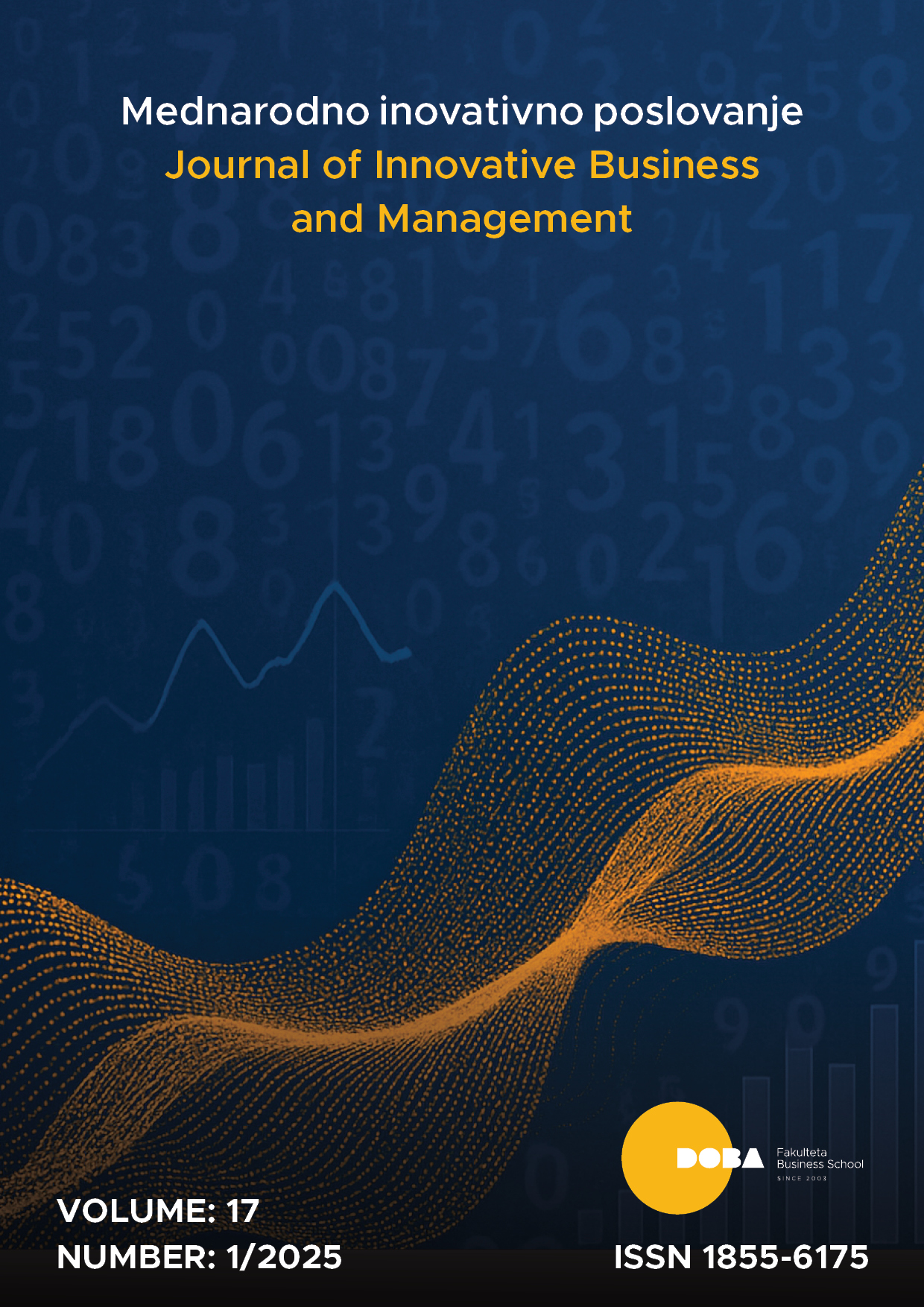Integrating cognitive rehabilitation into comprehensive care for patients with multiple sclerosis: theoretical foundations, clinical practices, and future directions
DOI:
https://doi.org/10.32015/JIBM.2025.17.1.6Keywords:
cognitive rehabilitation, multiple sclerosis, neuropsychology, cognitive reserve, interdisciplinary careAbstract
Cognitive impairment is a common and significant feature of multiple sclerosis (MS), often present even in the early stages of the disease. Despite its prevalence, it frequently remains overlooked and inadequately addressed in clinical practice. This article explores contemporary approaches to cognitive rehabilitation in MS, emphasizing the integration of neuropsychological expertise, individualized treatment, and the role of interdisciplinary teams. Based on a literature review, it presents the main characteristics of cognitive changes, assessment approaches, and intervention strategies, including computer-assisted programs, metacognitive techniques, and ecologically oriented methods. The article advocates for the systematic incorporation of cognitive rehabilitation into routine practice and highlights the need for greater accessibility, standardized procedures, and research-driven development in the future.
References
Appelbaum, P. S., Lidz, C. W., & Klitzman, R. (2009). Voluntariness of consent to research: A conceptual model. Hastings Center Report, 39(1), 30–39.
Beauchamp, T. L., & Childress, J. F. (2019). Principles of biomedical ethics (8th ed.). Oxford University Press.
Benedict, R. H. B., Amato, M. P., DeLuca, J., & Geurts, J. J. G. (2020). Cognitive impairment in multiple sclerosis: Clinical management, MRI, and therapeutic avenues. The Lancet Neurology, 19(10), 860–871.
Boeschoten, R. E., Braamse, A. M. J., Beekman, A. T. F., Cuijpers, P., van Oppen, P., Dekker, J., & Uitdehaag, B. M. J. (2017). Prevalence of depression and anxiety in multiple sclerosis: A systematic review and meta-analysis. Journal of the Neurological Sciences, 372, 331–341.
Bonzano, L., Tacchino, A., Brichetto, G., Roccatagliata, L., Abbruzzese, G., Mancardi, G. L., & Bove, M. (2014). Cognitive rehabilitation in multiple sclerosis: The role of plasticity. Frontiers in Neurology, 5, 147. https://doi.org/10.3389/fneur.2014.00147
Chiaravalloti, N. D., & DeLuca, J. (2008). Cognitive impairment in multiple sclerosis. The Lancet Neurology, 7(12), 1139–1151.
Corrigan, P. W., & Watson, A. C. (2002). Understanding the impact of stigma on people with mental illness. World Psychiatry, 1(1), 16–20.
De Meo, E., Ziccardi, S., Stojanovic, J., et al. (2021). Telemedicine and multiple sclerosis: An update and a review. Current Opinion in Neurology, 34(3), 322–329.
Filippi, M., Rocca, M. A., Barkhof, F., et al. (1998). A guideline for determining brain atrophy in multiple sclerosis. Brain, 121(4), 807–815.
Flachenecker, P., & Meissner, H. (2021). Comprehensive rehabilitation for patients with multiple sclerosis. Journal of Neurology, 268(3), 1115–1123. https://doi.org/10.1007/s00415-020-10227-5
Khan, F., Amatya, B., Kesselring, J., & Galea, M. (2021). Cognitive rehabilitation for people with multiple sclerosis: A systematic review. Multiple Sclerosis Journal, 27(2), 184–202. https://doi.org/10.1177/1352458520934634
Langdon, D. W., Amato, M. P., Boringa, J., et al. (2021). Recommendations for a brief international cognitive assessment for multiple sclerosis (BICAMS). Multiple Sclerosis Journal, 27(6), 805–814.
Latimer-Cheung, A. E., Pilutti, L. A., Hicks, A. L., Martin Ginis, K. A., Fenuta, A. M., MacKibbon, K. A., & Motl, R. W. (2016). Rehabilitation in multiple sclerosis: A systematic review of systematic reviews. Archives of Physical Medicine and Rehabilitation, 97(1), 156–177. https://doi.org/10.1016/j.apmr.2015.07.023
Lezak, M. D., Howieson, D. B., & Loring, D. W. (1983). Neuropsychological assessment. Oxford University Press.
Longley, W. A. (2022). The role of the neuropsychologist in interdisciplinary rehabilitation. NeuroRehabilitation, 50(1), 1–10.
Magdič, J., Hojs, A., & Splicin, M. (2018). Brain atrophy and cognitive dysfunction in patients with multiple sclerosis. Slovene Medical Journal, 87(3), 163–170.
Miller, D. M., Allen, R., Chiaravalloti, N. D., & Glanz, B. I. (2015). Rehabilitation in multiple sclerosis: Report of the Guideline Development, Dissemination, and Implementation Subcommittee of the American Academy of Neurology. Neurology, 84(17), 1776–1783. https://doi.org/10.1212/WNL.0000000000001537
Prosperini, L., & Di Filippo, M. (2019). Beyond clinical changes: MRI correlates of cognitive improvement after cognitive rehabilitation in MS. Multiple Sclerosis Journal, 25(4), 530–539.
Riva, G., Baños, R. M., Botella, C., Mantovani, F., & Gaggioli, A. (2016). Transforming experience: The potential of augmented reality and virtual reality for enhancing personal and clinical change. Frontiers in Psychiatry, 7, 164.
Rocca, M. A., Amato, M. P., De Stefano, N., et al. (2019). Clinical and imaging assessment of cognitive dysfunction in multiple sclerosis. The Lancet Neurology, 18(2), 174–186.
Rosti-Otajärvi, E., & Hämäläinen, P. (2014). Neuropsychological rehabilitation for multiple sclerosis. Cochrane Database of Systematic Reviews, 2014(2), CD009131.
Sumowski, J. F., Benedict, R. H. B., Enzinger, C., et al. (2018). Cognition in multiple sclerosis: State of the field and priorities for the future. Neurology, 90(6), 278–288.
Walton, C., King, R., Rechtman, L., et al. (2020). Rising prevalence of multiple sclerosis worldwide: Insights from the Atlas of MS, third edition. Multiple Sclerosis Journal, 26(14), 1816–1821.
Downloads
Published
Issue
Section
License
Copyright (c) 2025 Estera Žalik, Anja Rakuša Brus

This work is licensed under a Creative Commons Attribution-NonCommercial 4.0 International License.
The authors retain rights under the Creative Commons Attribution-ShareAlike 4.0 International CC BY-SA 4.0. Authors assign copyright or license the publication rights in their articles, including abstracts, to MIP=JIBM. This enables us to ensure full copyright protection and to disseminate the article, and of course MIP=JIBM, to the widest possible readership in electronic format. Authors are themselves responsible for obtaining permission to reproduce copyright material from other sources.















